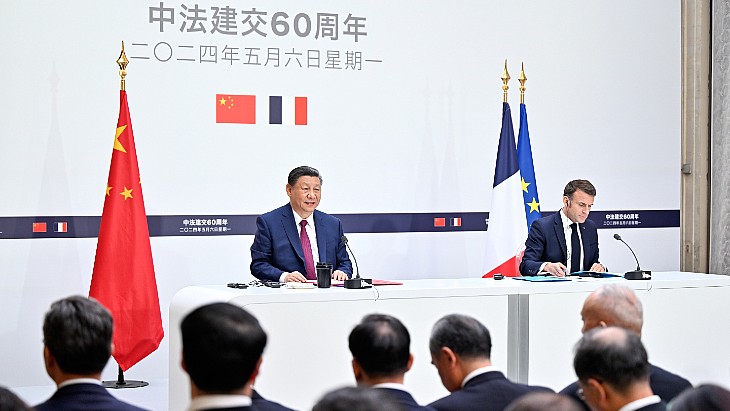US fiscal 2018 budget approved
UPDATED: This story has been updated to include comments from Uranium Producers of America.
Both houses of the US Congress have approved an omnibus appropriations bill including USD1.2 billion for nuclear energy. The bill will see the suspension of sales by the Department of Energy (DOE) of surplus uranium to pay for decommissioning work at the former Portsmouth uranium enrichment plant.
Senators today approved the Consolidated Appropriations Act 2018, which appropriates some $1.3 trillion of US treasury funds and covers the period to 30 September, by 65 votes to 32. The House of Representatives yesterday approved the act by 256 votes to 167. The bill, which the White House yesterday described as "a win for the American people", can now go to President Donald Trump for signature.
The USD1.2 billion for nuclear energy approved by Congress is significantly more than the USD703 million in the president's fiscal 2018 budget request for the Department of Energy. However, requests for appropriations by both the DOE and the US Nuclear Regulatory Commission (NRC) to restart licensing activities for the Yucca Mountain nuclear waste repository and establish an interim storage programme for used nuclear fuel are not included in the final version.
The NRC receives an appropriation of USD909 million. This includes USD10 million "for activities related to the development of regulatory infrastructure for advanced nuclear technologies".
The DOE in February submitted a budget request for fiscal 2019, which begins on 1 October, totalling USD30.6 billion. This includes USD757 million for the Office of Nuclear Energy and USD120 million to restart its application process for Yucca Mountain. The NRC itself put forward a request fiscal 2019 that includes nearly $50 million for work related to the proposed repository.
Barter suspended
The budget appropriates USD840 million "for Department of Energy expenses necessary in carrying out uranium enrichment facility decontamination and decommissioning, remedial actions." This includes the clean-up of the former Portsmouth gaseous diffusion uranium plant in Piketon, Ohio, which has over recent years received funding from the sale of DOE-held inventories of uranium in a process known as "bartering". DOE had been transferring 2100 tU per year of excess uranium not needed for national security in exchange for services at Portsmouth and also for the downblending of high-enriched uranium.
US uranium producers have expressed growing concern about the effects of DOE inventory transfers on the uranium market. In March 2017, the DOE asked for public comment on the effects of transfers of its excess uranium inventory on the country's uranium mining, conversion and enrichment industries. The DOE's request was issued the day after the US Government Accountability Office raised issues related to excess uranium transfers over the previous decade.
The inclusion of funds for the Portsmouth decommissioning in the budget means the barter is now suspended until the end of the current bill, on 30 September. Ahead of the congressional votes, US Energy Secretary Rick Perry on 20 March told the Senate Natural Resources Committee that in his opinion the uranium bartering process was poorly designed. "Personally, I'd like to see it stopped completely," he said. "Our efforts should be focused on letting the uranium marketplace work as it should while continuing without disruption the important work that is taking place at the Portsmouth site," he added.
The Uranium Producers of America (UPA) organisation, which has previously called on the DOE to halt transfers of federal excess uranium inventory until the uranium market recovers, applauded Congress for the action which the UPA said would keep about 1.6 million pounds of uranium from "flooding" the market in the coming months. "At a time when our industry is providing less than 2% of the fuel needed to power our domestic nuclear reactors, halting Department of Energy uranium transfers is the right policy and we look forward to working with Congress and the Administration on a long-term plan for the inventory as well as other actions to ensure we have a strong and stable domestic industry," the organisation said.
Researched and written
by World Nuclear News










_88592.jpg)

